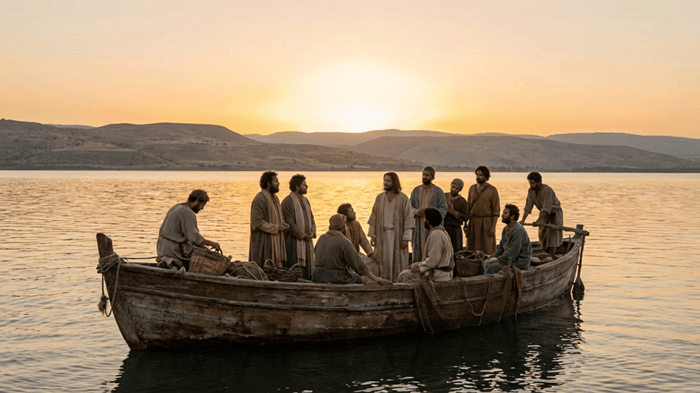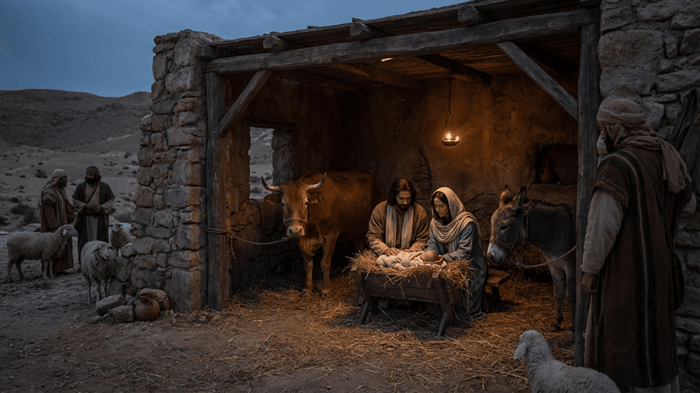The 12 apostles hold a unique place in Christian history, as they were chosen by Jesus to be His closest followers and spread His teachings to the world. They are often seen as role models of faith, commitment, and sacrifice. In this article, we will explore who each of the 12 apostles were, what they did, and how they are remembered today.
Who Were the 12 Apostles?
The apostles were ordinary men called by Jesus to do extraordinary things. They came from diverse backgrounds, including fishing, tax collecting, and political activism. Despite their differences, they were united by their faith in Jesus and their commitment to spreading the gospel. Here’s a closer look at each one of them:
Peter: The Rock of the Church
Peter, originally named Simon, was a fisherman from Galilee. Jesus called him "Peter," which means "rock," signifying his future role as a foundational leader in the church. Peter is known for his faith, though he famously denied Jesus three times before the crucifixion. After Jesus' resurrection, Peter became a leading figure in the early Christian church, eventually preaching in Rome, where he was martyred.
- Role: Leader among the apostles
- Notable Traits: Bold, impulsive, and deeply devoted
- Key Events: Walking on water, denying Jesus, preaching at Pentecost
Andrew: The First-Called
Andrew, Peter’s brother, was also a fisherman. He was one of the first to follow Jesus and is known for bringing others to meet Him. Andrew's willingness to introduce others to Jesus reflects his evangelistic spirit.
- Role: Evangelist who brought others to Jesus
- Notable Traits: Humble and enthusiastic
- Key Events: Bringing his brother Peter to Jesus, missionary work in Asia Minor
James the Greater: Son of Thunder
James, the son of Zebedee, was called "James the Greater" to distinguish him from the other James among the apostles. He was one of the "Sons of Thunder" along with his brother John, which could refer to their fiery nature. James was part of Jesus’ inner circle and was the first apostle to be martyred.
- Role: Close disciple of Jesus, an early martyr
- Notable Traits: Zealous and passionate
- Key Events: Witnessing the Transfiguration, the first martyred apostle
John: The Beloved Disciple
John, James’s brother, is often called "the disciple whom Jesus loved." Known for his deep spirituality, John was close to Jesus and was present at the crucifixion. He is traditionally credited with writing the Gospel of John, three epistles, and Revelation.
- Role: Author, witness of Jesus’ final hours
- Notable Traits: Compassionate and faithful
- Key Events: Present at Jesus’ crucifixion, writing New Testament books
Philip: The Questioning Disciple
Like Peter and Andrew, Philip was from Bethsaida. He is known for questioning Jesus and seeking to understand Him better. Philip’s curiosity led him to ask profound questions, and he brought many people to Jesus, including the disciple Nathanael.
- Role: Evangelist who brought people to Jesus
- Notable Traits: Inquisitive and thoughtful
- Key Events: Asking questions at the Last Supper, leading the Ethiopian eunuch to faith
Bartholomew (Nathanael): The True Israelite
Bartholomew, also known as Nathanael, was praised by Jesus as a “true Israelite, in whom there is nothing false.” He was known for his honesty and strong faith. Tradition holds that he preached in India and Armenia, where he was martyred.
- Role: Sincere and devoted follower
- Notable Traits: Honest and faithful
- Key Events: His conversation with Jesus under the fig tree
Matthew: The Tax Collector
Matthew, also known as Levi, was a tax collector before he followed Jesus. Tax collectors were often despised, but Jesus saw potential in Matthew, who left his job to follow Him. Matthew later authored the Gospel that bears his name, focusing on Jesus as the promised Messiah.
- Role: Evangelist, Gospel writer
- Notable Traits: Compassionate and inclusive
- Key Events: Leaving his job to follow Jesus, writing the Gospel of Matthew
Thomas: The Doubter
Thomas, often called “Doubting Thomas,” is best known for questioning Jesus’ resurrection until he saw Jesus for himself. His story reflects the need for personal experience in faith, and he eventually went on to become a bold missionary, reportedly spreading Christianity in India.
- Role: Skeptical but dedicated follower
- Notable Traits: Thoughtful and sincere
- Key Events: Touching Jesus' wounds, missionary work in India
James the Lesser: The Humble Apostle
James the Lesser, likely called so because of his younger age or shorter stature, is less prominent in the Gospels. Some scholars believe he was a relative of Jesus, and he played an important role in the Jerusalem church.
- Role: Humble and dedicated disciple
- Notable Traits: Quiet and steadfast
- Key Events: Leadership in the early Jerusalem church
Thaddeus (Jude): The Apostle of Faith and Courage
Thaddeus, also called Jude or Judas (not Iscariot), is known for his courageous questions and is traditionally seen as the author of the Epistle of Jude. He encouraged Christians to remain strong in their faith.
- Role: Encourager and epistle writer
- Notable Traits: Bold and faithful
- Key Events: Writing the Epistle of Jude
Simon the Zealot: The Passionate Apostle
Simon the Zealot was likely a former member of the Zealots, a Jewish nationalist group. His title suggests he had a fiery zeal for God, and he became a faithful follower of Jesus, channeling his passion into spreading the Gospel.
- Role: Devoted follower
- Notable Traits: Passionate and driven
- Key Events: Missionary work, possibly martyred in Persia
Judas Iscariot: The Betrayer
Judas Iscariot is known for betraying Jesus for thirty pieces of silver. Though he started as a trusted apostle, he allowed greed and doubt to consume him. His betrayal ultimately led to Jesus’ crucifixion, and his story is a tragic reminder of the consequences of unfaithfulness.
- Role: Apostate apostle
- Notable Traits: Ambitious but flawed
- Key Events: Betraying Jesus, leading to the crucifixion
Summary Table of the 12 Apostles
| Apostle | Key Role | Notable Traits | Key Events |
|---|---|---|---|
| Peter | Leader of apostles, first pope | Bold, impulsive | Walking on water, preaching at Pentecost |
| Andrew | Evangelist | Humble, enthusiastic | Bringing Peter to Jesus |
| James the Greater | Early martyr | Zealous, passionate | Witnessing Transfiguration |
| John | Author, witness of Jesus' last hours | Compassionate, faithful | Present at crucifixion |
| Philip | Evangelist | Inquisitive, thoughtful | Questioning at Last Supper |
| Bartholomew | Sincere and devoted follower | Honest, faithful | Encounter with Jesus under fig tree |
| Matthew | Gospel writer | Compassionate, inclusive | Leaving job to follow Jesus |
| Thomas | Skeptical but dedicated | Thoughtful, sincere | Touching Jesus' wounds |
| James the Lesser | Leader in Jerusalem church | Quiet, steadfast | Early church leadership |
| Thaddeus (Jude) | Encourager, epistle writer | Bold, faithful | Writing Epistle of Jude |
| Simon the Zealot | Passionate follower | Passionate, driven | Missionary work |
| Judas Iscariot | Betrayer | Ambitious, flawed | Betraying Jesus |
Each apostle had unique qualities and backgrounds, yet they were united by their shared mission to spread Jesus' message. Their stories offer lessons on faith, loyalty, forgiveness, and the power of transformation. Whether by their actions or their teachings, these 12 men left a legacy that continues to inspire Christians worldwide.




